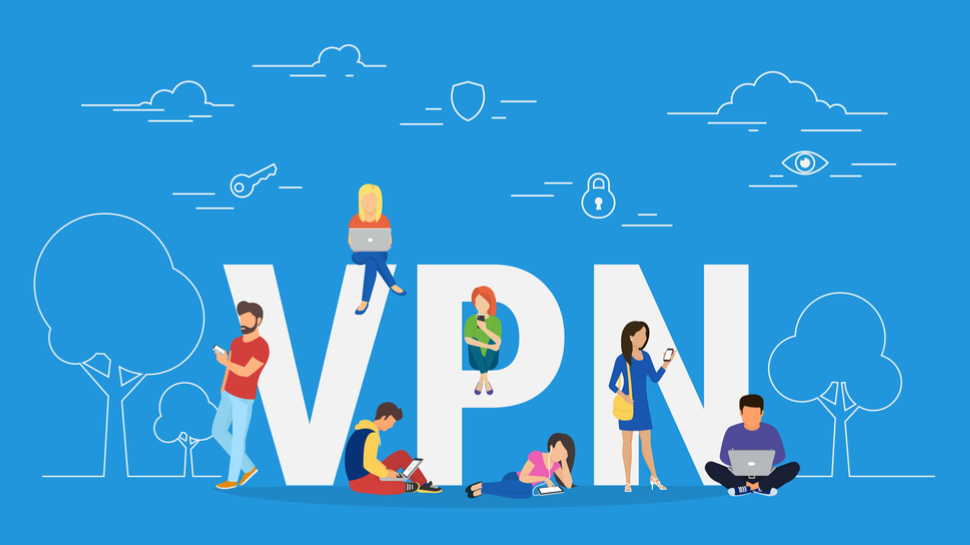8 things to consider before buying a VPN
A virtual private network is a great solution for privacy fans

Are you thinking about signing up for any of the best VPNs? Do you understand how they work and what benefits they can provide? Have you considered how much of your life is transmitted over the internet in the form of social media, photographs, videos etc?
If this is giving you cause for concern then you are not alone, given all of the potential assaults against your privacy. One way to secure your data and to take control over how you appear online is to use a virtual private network (VPN).
What actually happens then when you use a VPN? Essentially, a VPN creates a virtual encrypted tunnel between you and a remote server operated by a VPN service.
All your internet traffic goes through this tunnel keeping your data safe from undesirables. Also, using a VPN gives the impression that your computer has the IP address of the VPN server, which effectively masks both your identity and your location.
So what are some considerations to take into account when choosing a VPN?
1. Payment
Make sure that you understand how the VPN is keeping you anonymous even though payments will be carried out through non anonymous methods like credit cards etc. You should know all of this information before choosing a VPN.
If you have to pay via a non-anonymous method like credit card, check your VPNs privacy policy carefully to see if this information can be linked to your online usage.
If you don’t want to trust your VPN provider with this information, consider instead using an anonymous payment method via a cryptocurrency like Bitcoin. If you do this, make sure also to use a unique email address and password for the VPN service, otherwise there’ll be a link between this and your other online account.
If you can afford the commission, pay for your Bitcoins with cash from a specialist seller or ATM. This will make the payment much harder to trace then if you use bank transfer.
For more help, check out our guide on how to buy Bitcoin.
2. Security
A VPN is a uniquely powerful tool that you should definitely consider for your personal security. Whether it’s a free service or even an encrypted router, encrypting your internet traffic is a priority whilst you go about your online business. What level of encryption is your VPN provider offering?
With something like AES or ChaCha20 256-Bit encryption, all of your internet activity is buried below several layers of security - making your personal information extremely difficult to view, even if it’s intercepted on any public WiFi hotspots for example.
The type of encryption used, as well as the way in which your device identifies itself to the VPN network is largely decided by your particular VPN Protocol. Each of these come with their own pros and cons - for instance Wireguard is extremely fast and secure but has no built-in way to change your IP address, making you easy to identify. Older protocols like OpenVPN are easier to trust, as they’ve had more time to be reviewed by the security community for flaws but can also be slower. Some VPN providers also offer their own protocol, such as ExpressVPNs Lightway.
It’s difficult, particularly in the case of custom VPN protocols, to know which is best for you. Make sure to ask your provider if they support open source protocols, as these offer the best way to be sure there aren’t any security bugs or backdoors. If your provider uses a special protocol, ask if it has been independently audited by a qualified InfoSec researcher.
3. Privacy
You want to consider a VPN service that does not log any personal data (to avoid legal liability) and to ensure the online privacy of users. You should be certain that the VPN does not store any log files on their servers - i.e.all of the usage data that they receive is completely anonymous and is not connected to a user’s real IP address or location.
The VPN should not be part of the Five Eyes, Nine Eyes or Fourteen Eyes Network. This agreement exists between multiple countries whereby internet traffic IS logged. You want to be signed up to a VPN where NO internet activity is logged whatsoever. On this note, make sure that the VPNs country of incorporation and operation falls outside of the 14 Eyes countries - a registered mailbox does not count.
Techradar maintains a list of the best no-log VPNs but the gold standard are those providers who regularly submit to audits by trusted third parties to make sure that they’re living up to their promises.
If your VPN provider rents virtual servers then they have to trust their data and yours to a third party. This could be an issue if the server is physically located in a country which doesn’t have strict laws against hacking, or where the data center could be subjected to a secret court order. Ask your provider to clarify both where the VPN company is registered and where the servers are physically, so you know before registering.
4. Advertising practices
Don't trust a VPN that advertises on ‘dodgy’ websites. There seems to be a huge market for third parties selling lifetime VPN subscriptions. It’s best that such middle men are avoided. After all, why would you trust your private information and banking details to third party sales websites? And why is the VPN service even partnering with third party websites to offer “sales” or “lifetime subscriptions”? Avoid middle men and third party websites and buy your subscription directly from the VPN company itself or via a reputable website.
5. Suspiciously cheap plans
Have you seen a cheap lifetime plan for less than $100? If something is too good to be true, then it's most likely some kind of bait/trap. After all, running a fast, safe and secure network of worldwide VPN servers with good apps and support is expensive with fixed recurring costs. If a VPN is offering cheap “lifetime subscriptions” then it could be collecting user data and selling it to third parties and advertisers or redirecting your browser to third party websites (and then earning commissions on sales). Avoid.
This is particularly true for “Free” VPN services. We’ve written about this before, as they have to keep the lights on somehow and many do this by selling user’s personal data. This is a particular worry for people using free mobile VPN apps.
Even the best free VPN providers may have to restrict user’s bandwidth or place a cap on downloads in order to offer the service to everyone.
Almost all reputable paid VPN subscriptions offer a free 30-day trial or let you pay a small amount to try out the service for just one month. This is more than enough time to check if it’s suitable for you, with minimal cost.
Reputable providers also often offer substantial discounts to people willing to pay for 1, 2 or 3 years in advance. This is an established practice and nothing to worry about - they’d just rather have your money upfront than administer micropayments every month.
For reputable providers, see our guide to the best cheap VPN services.
6. Suspicious software
Most providers offer a downloadable ‘client’ app to help you easily connect to the VPN service. This can make setup very simple but there’s a catch : as these programs are “closed source”, how can you be sure that the code doesn’t contain security bugs? What if your provider wants to spy on you, so gives you a compromised version of the app?
Your first line of defence in this is only to download VPN client apps from legitimate sources. For instance both the Google Play and Apple App Stores vet applications made available for download to screen out some of the nastier bits of code.
If you’re worried about trusting proprietary software, ask your provider if they support OpenVPN. That way you can connect to the service using an open source app like OpenVPN Connect. (This program’s available for Windows, Mac, Linux, Android and iOS amongst others).
Using OpenVPN Connect is also a good solution if your chosen VPN provider doesn’t offer a client app for your chosen device.
If you don’t want to install any extra software to your computers or mobile devices, don’t forget that you can set up a VPN connection on the best VPN routers. This means that any device connected to your router’s WiFi network would automatically benefit from the VPN’s protection.
7. Speed
VPN providers are very fond of offering lightning-fast connection speeds with their service, as they know that’s important to people who want to stream video e.g. from Netflix USA, play online games or download large files.
Using a VPN can actually improve your connection speed, as some ISP’s engage in bandwidth ‘throttling’ or ‘shaping’ where they deliberately slow down certain types of traffic like online video. This is impossible to do when you’re connected to a VPN via an encrypted ‘tunnel’ as there’s no way for the ISP to know exactly what type of content you’re downloading.
Still, in the nature of things connecting to a VPN means all your own client device’s traffic is being shunted through a VPN server. In the nature of things this slows down your connection, if only slightly.
There are a number of factors which will affect your overall VPN connection speed from your location, the location of the server, how many other people are using the service, how you connect to the internet (cable’s faster than WiFi) and so on.
The best way forward is to pay for a 1-month subscription with your chosen provider (or sign up for a free 30-day trial in some cases), then follow our guide on how to measure speed at different times in different ways.
If speed is a big concern for you, don’t forget also to read through our reviews of the very fastest VPNs.
8. And don’t forget to…
Read the Terms of Service. As with most things these days, read the small print. For example, are there any service limitations that differ from those advertised (i.e unlimited data traffic vs "fair use")? The best terms of service make all issues clear, without clouding details or writing them without using legal jargon.
Make sure you also use a search engine to read reviews of the VPN service : in particular you should check if they’ve been hacked in a significant way or cooperated with requests to hand over data in the past.
If your VPN is based in a jurisdiction which forbids them from revealing this kind of information, check to see if your provider has a “Warrant Canary”. This in essence involves the provider repeatedly (say once a month) stating that they have not been subject to any kind of secret subpoena or court to hand over users’ data. If they ever fail to do this, then you’ll know that your data is at risk, so can cancel your subscription.
- Sebastian Schaub is the CEO and founder of Hide.me
Sign up to the TechRadar Pro newsletter to get all the top news, opinion, features and guidance your business needs to succeed!
